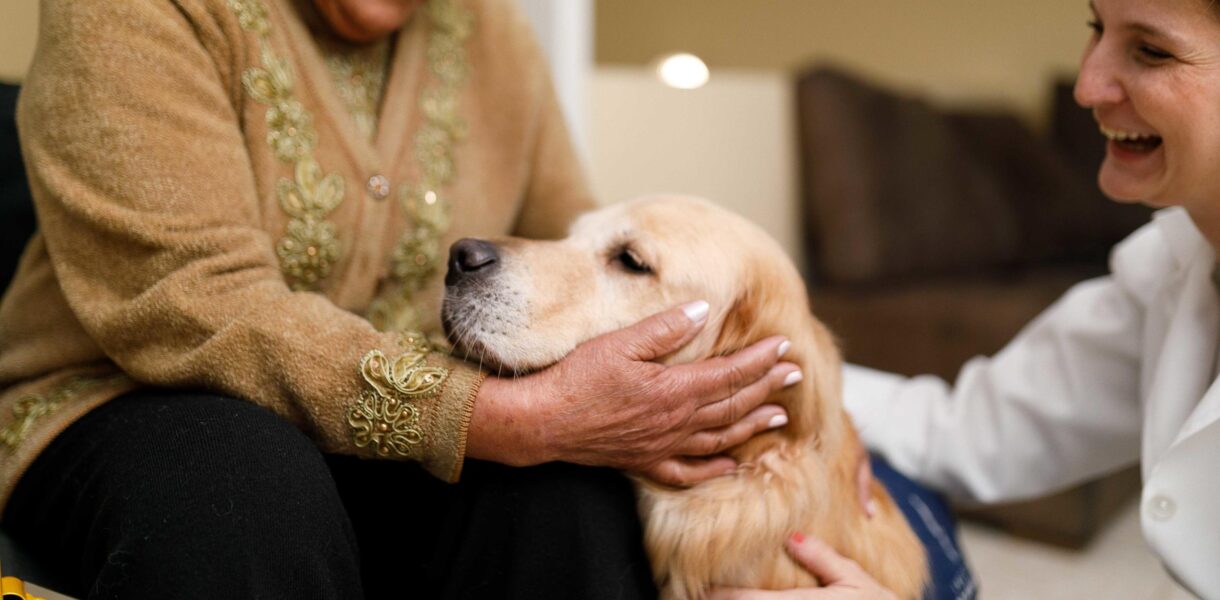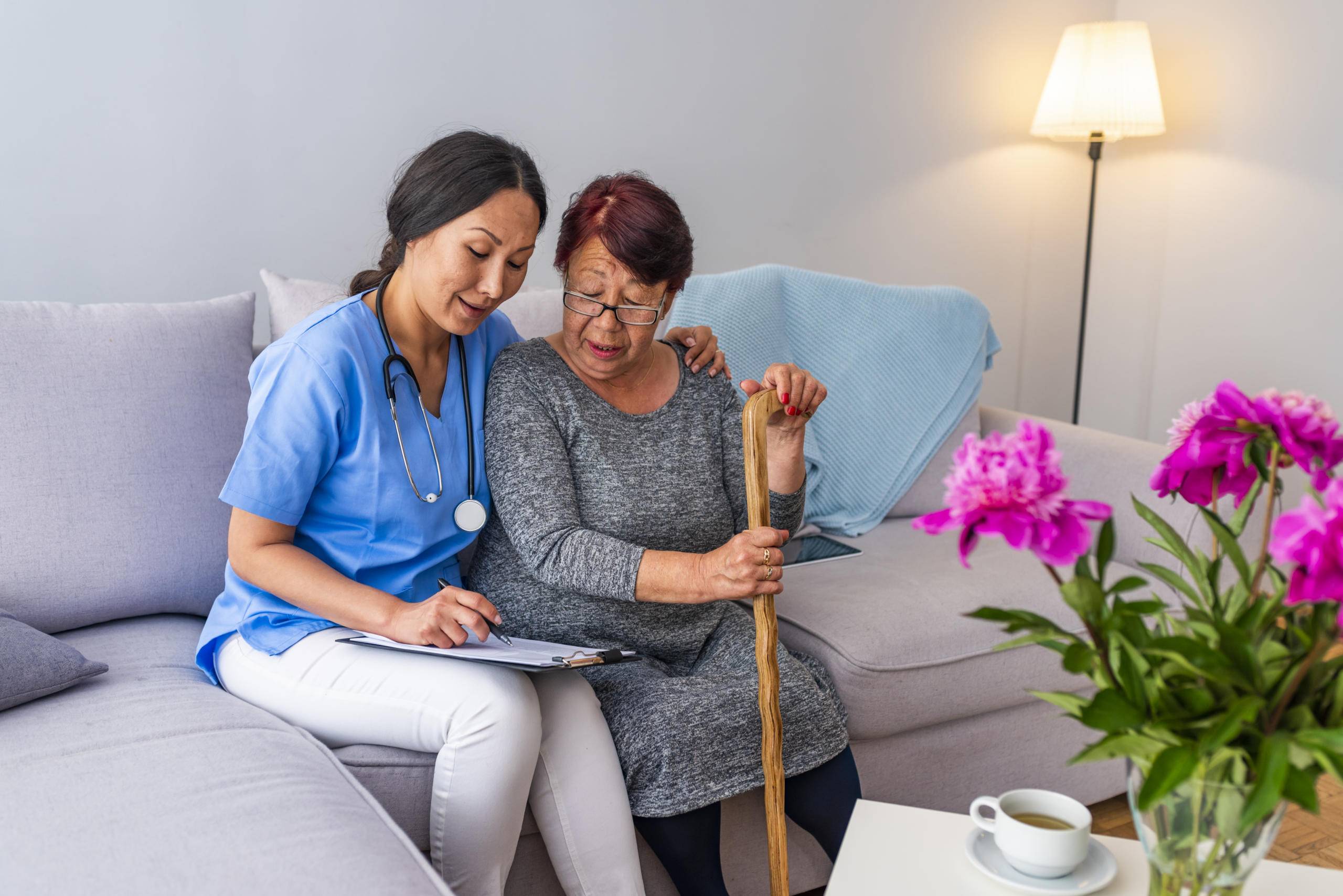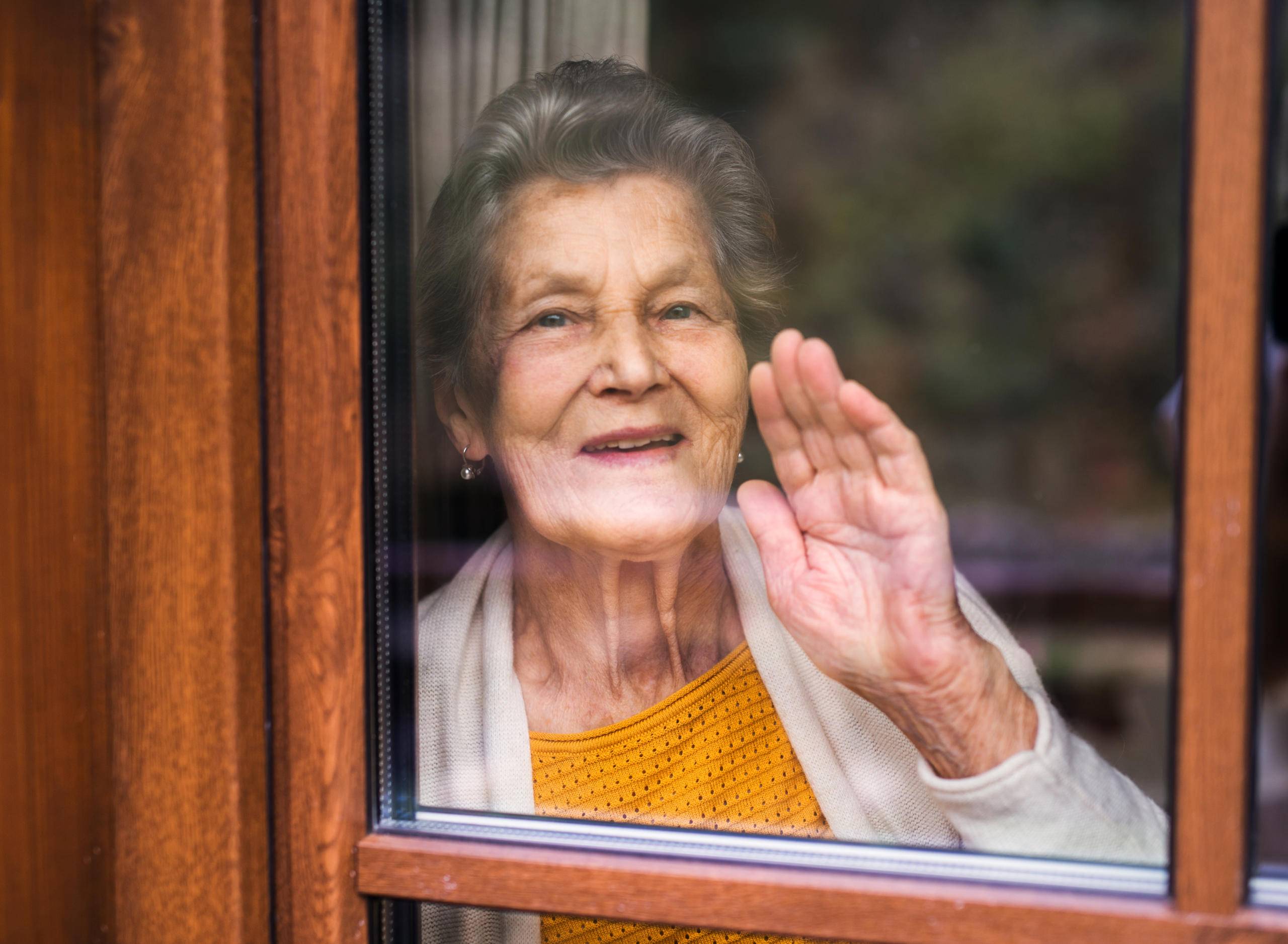
Amazing Animals: How Pet Therapy Can Help People With Dementia
After two decades of research, we know the facts: Pet therapy benefits those living with dementia in more ways than one. Many smaller studies and one large-scale study in 2019 have proven that pet therapy has significant benefits for patients with dementia.
How can pet therapy help?
Increased Interaction. Animal companionship gives us joy and comfort, but it also encourages withdrawn dementia patients to interact with their environment. Perhaps it’s because animals communicate non-verbally and offer affection without demands. Who can resist a furry friend who wants to play or needs a pat? Therapy dogs know that putting their heads on someone’s knee will lead to lots of attention and petting.
Calmer Days. If you have a pet, you know that (usually) they’re a source of calm. A 2019 study showed that pet therapy triggers a patient’s automatic relaxation response, which reduces rates of anxiety and agitation. Patients in the study had lower stress hormones and lower blood pressure during their pet therapy sessions.
Increased overall memory recall. Some patients in the 2019 study had improved short-term memory. Some recalled having pets in the past, a form of nostalgia therapy.
Fewer Behavior Issues. In 2002, researchers found a significant decrease in behavioral issues like agitation and aggression after adding a full-time resident dog to a memory care center. A 2019 study found the same result and a reduction of sundowner’s behavior (agitation and distress that occurs near nightfall) when people were offered pet therapy.
Better Nutrition and Weight. Even fish aquariums benefit people in memory care communities. In 2002 Purdue University researchers found an increase in nutritional intake and an average 1.65-pound weight gain among the patients who enjoyed fish aquariums in the dining area.
More activity. Patients who interact with pets are more likely to move and get more activity during the day. Throwing a ball, taking a short walk, or playing with a toy gets patients moving and active.
We at Avalon Memory Care know firsthand how helpful pet therapy can be. We coordinate with private companies and hospice services to bring in pet therapy as an event or for an individual upon request. We also encourage pets to visit if they are well behaved. Pets are great for our residents!
Pet therapy events are only one of the ways we can support your loved one at Avalon DFW metroplex, Houston, Austin, San Antonio, and South Texas. Our Alzheimer’s support professionals go above and beyond to maintain an unsurpassed level of care, safety, and well-being for each of our residents. When it is time to look for assisted living choices for your loved one, call us at (972) 364-4755.
See More Articles
-
Visiting Your Aging Parent With Memory Loss at Avalon Memory Care
As a loving son or daughter, you naturally want the best of care for your senior parent. The compassionate assisted living caregivers at Avalon Memory Care want you to know that while your parent is living with us, he or she will receive nothing less than respectful, loving care within our comfortable, safe, and fully-staffed
-
Celebrating New Year’s Day in Memory Care
Families often find that celebrations with their loved ones in memory care are easier when they embrace new traditions. For instance, it may not be practical to expect your loved one to stay up until midnight on New Year’s Eve. Instead, consider throwing a New Year’s Day celebration, complete with a countdown to the first
-
Understanding Parkinson’s Disease and Dementia
Parkinson’s disease is an incurable neurological disorder, with progressively worsening complications. Perhaps the most well-known symptom of Parkinson’s is a hand tremor, but it can also cause speech changes, muscle rigidity, and impaired posture. Eventually, as the disease progresses, more than half of all individuals with Parkinson’s will require dementia care. This particular type of
Testimonials
Downloadable Resources
We Are Avalon
Discover the heart of our community; download ‘We Are Avalon’ to get to know our dedicated team and our commitment to providing a warm, family-like environment.
Transitional Care Guide
If you’re considering a transition, we’re here to help; download our Transitional Care Guide for compassionate guidance through each step of the process.
Schedule a Tour
Visit one of our 30+ campuses and experience our unique approach to memory care.












